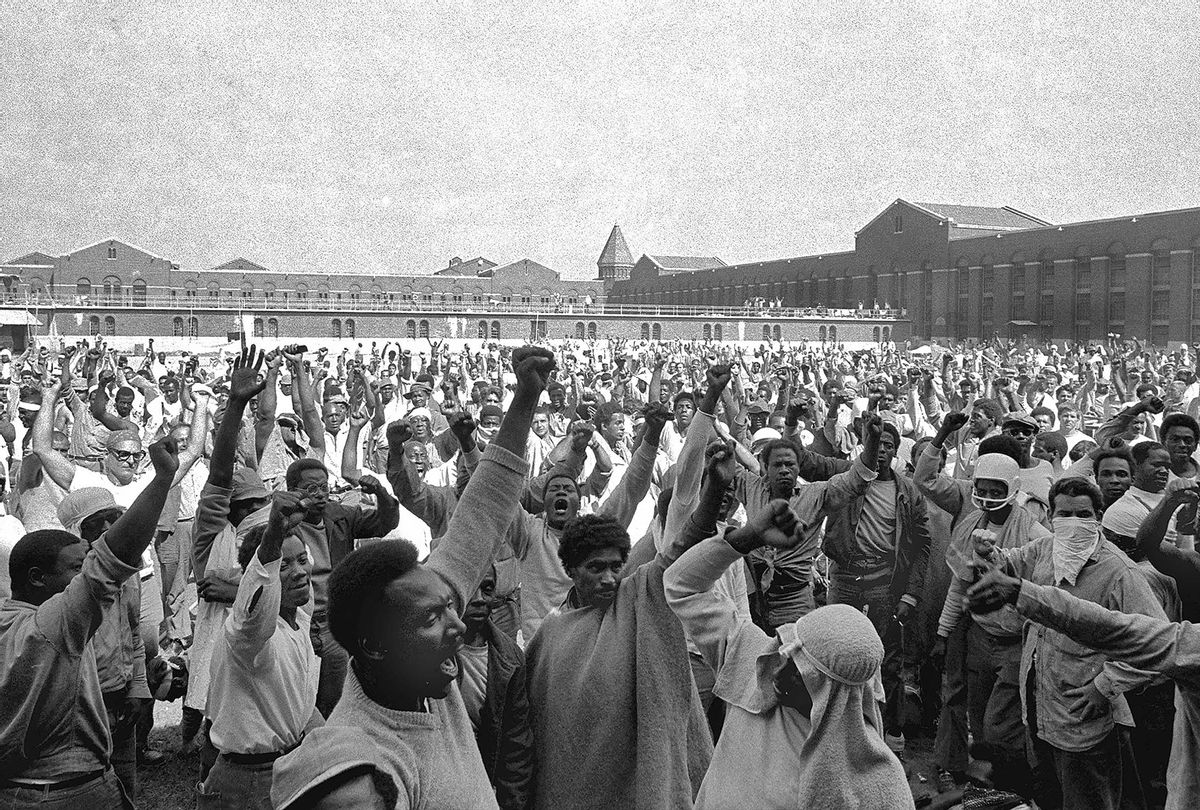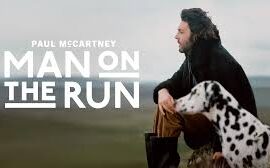
Remember Al Pacino shouting “Attica” in “Dog Day Afternoon”? That’s about all anyone remembers 50 years after the deadliest prison riot in America’s history.
The actual revolt, the bloodiest in American history, is detailed in the new Showtime documentary “Attica” (also currently streaming on Crave).
This is an unblinking look at the upstate 1971 New York massacre that left 43 dead. The event occurred after a hostage taking at the notorious penal institution where conditions had degenerated. Tensions had risen as, among other things, the prison population had swollen beyond 2200 inmates, double the recommended level of incarcerations.
The two-hour documentary covers the events leading up to and throughout the five-day standoff. Hostages were taken, negotiations occurred and most of the prisoners demands for better conditions seem to have been met. Things broke down over a refusal by prison officials to grand amnesty to those involved in the murder of a prison guard during the hostage taking as well as then New York governor Nelson Rockefeller’s refusal to visit the site.
A damning taped conversation between US president Richard Nixon and Rockefeller is played. Nixon, elected in 1968 on a law and order ticket, showed little interest in a negotiated settlement — especially with long-haired attorney William Kunstler advocating on behalf of the prisoners. Rockefeller, who had political ambitions of his own, has his own agenda to secure.
The full horror of the Attica State prison riot unfolds in documentary footage from the time. The outdoor prison yard, where trenches were dug for the 1200 or so prisoners and hostages involved in the revolt to urinate and defecate, looked like something shot at a Nazi death camp.
advertisement
There would have been little sympathy for the inmates as this story unfolded on national television reports in September of 1971. Initial reports carried the misinformation that ten hostages had had their throats slashed by inmates as the guards re-took the prison space. What is shown through footage of the time is a helicopter bombing the grounds with teargas followed by hundreds of troops, along with many prison guards, firing round after round through the smoke at the helpless and unarmed people in the yard.
As a result, nine of the ten hostages were later found, by coroners, to have died during the assault from gunshot wounds from troops storming the grounds. (A tenth died later from his wounds.) The corrected report was carried by some, but not all, news outlets two days later.
Disturbing also are shots of the troops after the attack outside the walls of the prison raising firsts and shouting, “White power.” Disturbing in the context of the times yes but more so in the terms of how familiar this looks to the racial goonery which took place January 6 in Washington.
Director Stanley Nelson, also a producer here, has been behind several excellent documentaries in recent years shedding light on North American racial struggles, including “Freedom Riders,” and “The Black Panthers: Vanguard of the Truth.” Here he interviews the few surviving inmates as well as one National Guard trooper called in to help pull the dead and wounded from the prison.
Their testimony is haunting and compelling. So is the commentary from Clarence Jones, who participated in negotiations with inmates and was an eyewitness to the carnage.
“I will never, ever, ever, ever, ever, ever, ever forget Attica. Never,” says Jones towards the end of the film.
What has clouded these memories, like teargas and smoke, are decades of comical references in popular culture. Besides Pacino’s chants from “Dog Day Afternoon,” we all laughed as Frank Drebin yelled “Attica! Attica!” as he went undercover in a prison in “Naked Gun 33 1/3: The Final Insult.”
According to Wikipedia, the chant has also been heard on The Fresh Prince of Bel Air, Bob’s Burgers, Gilmore Girls, SpongeBob SquarePants, It’s Always Sunny in Philadelphia, The King of Queens, Unbreakable Kimmy Schmidt, several TV dramas and even Sabrina, the Teenage Witch (“Cattica, Cattica!”).
“Attica” is a sobering reminder that none of this is a laughing matter. In recent years, US$12 million has been paid in civil suits to the families of prison employees and a further $8 million plus legal costs from the State to surviving prisoners.






